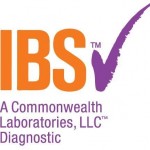 Recent research by Dr Mark Pimentel and his team at Cedars-Sinai Hospital in Los Angeles has thrown light on possible causes for IBS. Their central theory is that IBS is a manifestation of small intestinal bacterial overgrowth (SIBO) which results in bloating, pain, and diarrhea or constipation. In this theory, bacteria accumulate in the small intestine which is normally supposed to be fairly sterile. These bacteria produce a lot of gas and interfere with nutrient absorption, as well as irritating the gut, causing low grade inflammation, increasing gut permeability, and encouraging immune reactivity which encourages food allergies.
Recent research by Dr Mark Pimentel and his team at Cedars-Sinai Hospital in Los Angeles has thrown light on possible causes for IBS. Their central theory is that IBS is a manifestation of small intestinal bacterial overgrowth (SIBO) which results in bloating, pain, and diarrhea or constipation. In this theory, bacteria accumulate in the small intestine which is normally supposed to be fairly sterile. These bacteria produce a lot of gas and interfere with nutrient absorption, as well as irritating the gut, causing low grade inflammation, increasing gut permeability, and encouraging immune reactivity which encourages food allergies.
The pertinent question is why bacteria would start to accumulate in the small intestine in the first place. This part of the gut is normally kept clear following digestion by the migrating motor complex, a series of muscle contractions which sweep residual food out of the gut fairly rapidly. Dr Pimentel’s team have proposed that a possible reason for this is that the gut motility has been compromised by damage to the enteric nervous system as the outcome of a food poisoning event.
During a bout of food poisoning, the pathogenic bacteria may produce a substance called cytolethal distending toxin (CDT) which damages cells in the gut. As a response, the immune system tries to eliminate the offending bacteria and in the process it may make antibodies to CDT. Due to a process called molecular mimicry these immune antibodies may also be tricked into attacking a human protein called vinculin which is a normal component of the nervous system of the gut. This sets up a situation where the immune system maintains an inflammatory response within the intestine even after the food poisoning has subsided. In particular, over a period of time the immune system damages neurons in the enteric nervous system, and this leads to a reduced function of the muscular control of intestinal contractions. The result of this is that the gut slows down and the lack of motion leads to a loss of normal clearance of the gut contents and encourages the growth of resident bacteria.
A person who has been diagnosed with SIBO by taking a lactulose breath test might also benefit by taking the IBSChek test which looks for the presence of immune antibodies to CDT and to vinculin. If this blood test is positive then this indicates that the root cause of the patients IBS symptoms is an autoimmune issue triggered by a food poisoning event.
The IBSChek test is a new diagnostic test that has been created by Dr Pimentel’s lab and is available through Quest Diagnostics. The test is a simple blood test and takes around three weeks to produce a result. If the result is positive it is good evidence to indicate that this autoimmune issue is the underlying cause of the patient’s IBS. If it is negative, then some other process is producing the symptoms.
There is no conventional therapy available which can heal the autoimmune issue that is flagged by this test. Studies indicate that around 50% of post-infectious IBS patients improve with time. This may be because there is a turn-over of immune cells in the body, and so the inappropriate activation may slowly reduce, along with the chronic mucosal immunologic dysregulation and altered intestinal permeability associated with this condition. The presence of untreated anxiety and depression reduces the chance of recovery, which in any case may take some years. There may be other less conventional therapies which can address immune system health.
